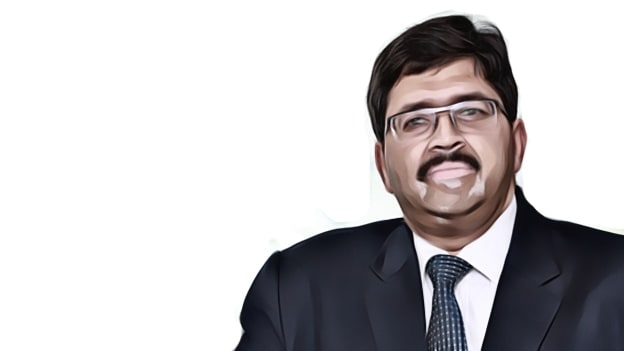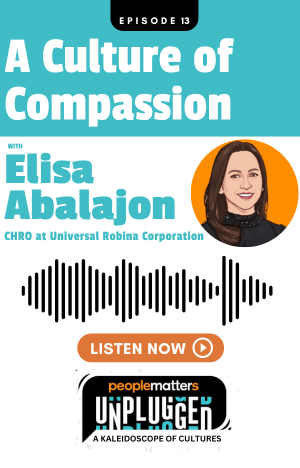Digital for us means how you bring in operational efficiency: Subramanian Suryanarayanan, CHRO, TAGIC

Digital today is providing the perfect opportunity to businesses, talent managers and technologists to engineer a fascinating workplace of tomorrow. Besides redefining, hiring and recruitment, it is moving a step forward to redefine the notion of productivity for individuals and corporations. But what does digital mean in the context of individual organizations? What does it mean for individual sectors say the insurance sector?
In an exclusive interaction with People Matters, Mr. Subramanian Suryanarayanan, Chief Human Resource Officer, Tata AIG General Insurance Company (TAGIC), throws light on what does digital mean in the context of TAGIC and what is the organization doing to ready a future-ready digital workforce.
How is technology redefining the notion of productivity for individuals and organizations? How much does it hold true for Tata AIG?
The way we are integrating technology in the hiring process - right from the beginning - the way resumes are parsed and duplication of candidature is avoided, is redefining productivity for us. Suppose when new resumes are sourced, how do we ensure that the same is not available in our database? With thousands of candidate profiles coming in, duplication poses a big problem. Similarly, how do we track which profile is sourced from which consultant? Today technology is helping us in tide over these problems and parsing of resumes.
Also, the entire aspect of predictive analytics where you are looking for keyword searches or searching for potential resumes in the system, based on the availability of jobs also driven by technology. Post hiring, the entire documentation filing process has gone digital.
“Behind every single employee is an employee file, and in every single file, tonnes of documents go in. For any organization, it leads to a significant consumption of physical space, which is an added cost.”
Today, we are trying to move this entire piece into a digital framework which can be accessed quickly and at any point of time.
We are also using online testing tools which help us reduce the time taken to validate or shortlist from thousands of people to around 30 people. And then you get down to the traditional way of interviewing.
The other aspect of usage of technology which we call ‘digital’ is how you use either Skype or WhatsApp today to conduct interviews. WhatsApp is easily available to do interviews in the organization. We have experimented with chatbots as well though not for recruitment but for a mentoring initiative. We have launched it in the pilot phase in the organization and based on our experience, we’ll scale up.
What digital really means in the context of your organization?
We are in the insurance business where customers are looking at companies to turnaround policies faster and in the most efficient way. So, digital steps in a very big way enabling us to issue policies at a faster pace. We have been able to reduce TATs from about 30 days to 10 days and we are looking at aggressive targets when it comes to issuing policies to customers. Thus digital for us means how do you bring in operational efficiency.
What are some of the tech trends in hiring in the insurance industry?
Today talent acquisition is one of the most critical assets of any organization. There are so many people out there but getting the right person is an uphill task. Though technology helps a lot in screening and shortlisting the right candidate, yet organizations rely on face to face interviews before rolling out an offer letter. This is especially true for leadership positions, I think physical interviews in these cases cannot be breached at all. This may vary from industry to industry.
I believe technology is a more helpful tool in the initial stages of an interview wherein a technology like Skype or video calling helps.
What are the steps you are taking to nurture a future ready digital workforce at TAGIC?
In the industry today, digital is a buzzword across the market. We at TAGIC are also looking at the future, what our strategy is going to be, and digital is an extremely important piece the company is looking at. While people speak about AI, gamification, and machine learning, but do they really understand what each of these means or how can it be put to use in the workplace. It is an aspect of learning, education and changing mindsets, and that’s what we are doing at TAGIC. We are exposing employees to what’s happening in the world outside.
We are getting into startups which are doing work in the digital area and also exposing the management and the people to the ways drones or chatbots or what gamification can help them do. So we are looking at learning and reskilling of our employees to get them ready for a digital future.
How is TAGIC investing in learning and development to reskill your employees?
“Learning is very crucial for our industry as general insurance is a knowledge intensive industry.”
Continuous learning is a key aspect of a job or a role requirement across Tata AIG. We have the Tata AIG Academy which is focusing only on domain centric learning and then we have a separate team which looks at behavioral and leadership interventions as and when required. We have mandatory programmes, we have standard learning paths, we have need based programs which help individuals to learn in the organization and it’s a continuous process.
Technology is causing organizational metamorphosis at a fast pace. Could you share an example as to how you using technology to enable disproportionate leaps in efficiency?
Let me tell you from the learning perspective. We implemented an LMS at the organization and over the last two years, we have been making a steady increase in the number of hours of learning usage or the number of hours employees are learning. That can be easily tracked because all learning programs are available online and people are using it. That is a big leap for us.
The other piece is the Quote Management System which is a digital platform to help us issue quotes on the fly to the customers on the field. This has helped in reducing the TAT which has significantly impacted the business.
What is the one thing technology won’t change about the insurance industry?
The insurance industry is all about ‘People’ and ‘Promises’ – the promises that an organization make to its Customers, and the People - the human assets of the organization, who help fructify those promises.
Few years down the line, our call centre team will still be there but they will be better equipped with advanced technologies for greater efficiency. What I cannot replace is the human being. There are chatbots but machine learning will take its time to emerge full proof.
Just as IVRs can only go to a certain extent-after that you need a human mind to solve a query. So while the insurance business goes digital, you won’t be able to take away the people from it. The only thing that matters is how well we gear up the team to learn, reskill and thrive in the digital world.









